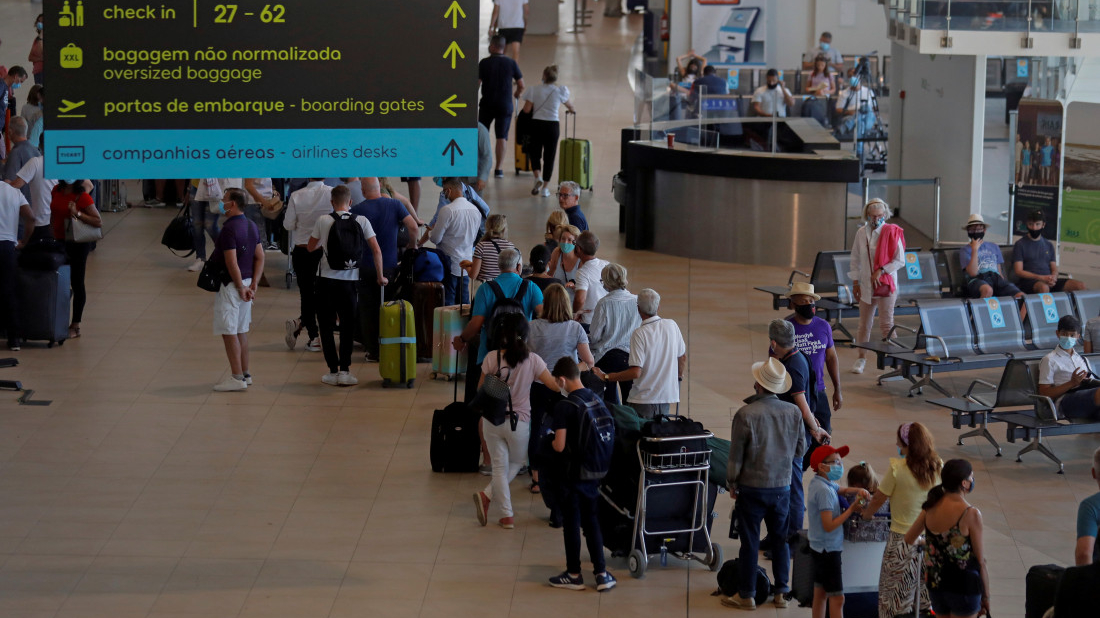live Israeli military says it has launched fresh strikes on Tehran and Beirut: All the latest news on the Iran strikes
The Israeli military has begun a new wave of strikes on Tehran, it said late on Monday. The strikes came after it issued...

The entry-exit system for non-EU citizens entering the European Union is set to be delayed. It's the third time it's been pushed back due to concerns raised by France, Germany, and the Netherlands.
Plans to introduce fingerprinting for non-EU passengers entering the Schengen area have been delayed for a third time, following concerns from France, Germany, and the Netherlands.
The new entry-exit system (EES), which requires non-EU travelers to provide fingerprints or photos upon entry, was originally set for summer 2023 but has faced multiple postponements. France initially raised concerns about the system's potential disruption during major events like the Rugby World Cup and the 2024 Summer Olympics. A second delay moved the launch to October 2024, but it was further pushed back to November due to worries about disrupting school trips.
However, EU diplomats now report the system is unlikely to be ready for implementation by the November deadline, despite the European Commission's recent announcement.
EU home affairs ministers will discuss contingency plans at a meeting in Luxembourg this week, with alternative options expected to be presented.
Follow the latest developments and global reaction after the U.S. and Israel launched “major combat operations” in Iran, prompting retaliation from Tehran.
Saudi Arabia’s state oil giant Saudi Aramco closed its Ras Tanura refinery on Monday following an Iranian drone strike, an industry source told Reuters as Tehran retaliated across the Gulf after a U.S.-Israeli attack on Iranian targets over the weekend.
The Kremlin is utilising the recent United States and Israeli military strikes on Iran to validate its ongoing war in Ukraine. Russian officials are pointing to the escalation in the Middle East as evidence that Western nations do not adhere to international rules.
The Middle East crisis intensifies after the deadly attack on the compound of the Supreme Leader of Iran Ali Khamenei on Saturday that killed him, other family members and senior figures. Iran has launched retaliatory strikes on U.S. targets in the region.
Ayatollah Alireza Arafi has moved into a pivotal constitutional role following the death of Supreme Leader Ayatollah Ali Khamenei, becoming the clerical member of Iran’s temporary leadership council under Article 111 of the Constitution of the Islamic Republic of Iran.
Global air travel remained in turmoil on Monday after U.S. and Israeli strikes on Iran and retaliatory strikes in the Gulf region prompted widespread airspace closures across the Middle East, disrupting one of the world’s most important aviation corridors.
Chinese travellers made an estimated 362.58 million cross-regional passenger trips on Monday, the final day of the Spring Festival holiday, according to official data.
A powerful winter storm has brought large parts of the U.S. Northeast to a standstill, dumping more than 30 cms (a foot) of snow across several states and severely disrupting transport and daily life.
A powerful winter storm has struck the north-east United States, placing nearly 60 million people under weather warnings. States of emergency have been declared across multiple states and forcing a travel ban in New York City as heavy snow, fierce winds and coastal flooding batter the region.
Spain’s rail network faces a three-day shutdown this week as the Semaf union protests safety failures following fatal accidents in Adamuz and Catalonia.
You can download the AnewZ application from Play Store and the App Store.

What is your opinion on this topic?
Leave the first comment